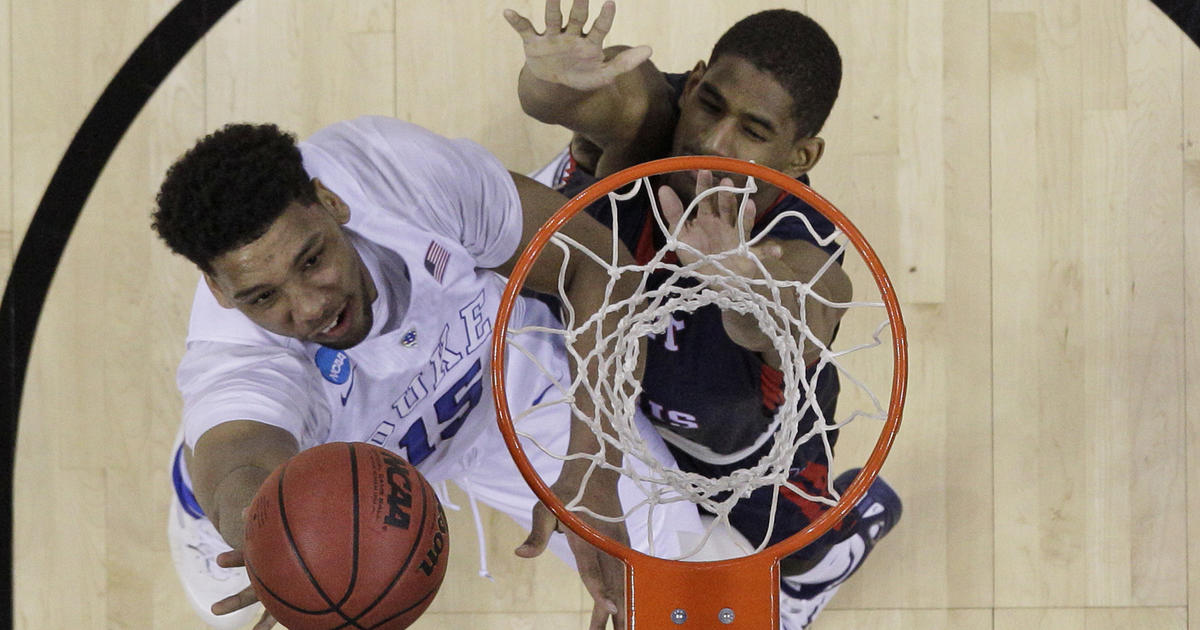
Teams competing in this year’s “March Madness” college basketball tournament will play their games in largely empty arenas. NCAA President Mark Emmert said Wednesday that the annual competition will proceed despite the coronavirus outbreak, but “only essential staff and limited family” will be allowed to attend the games.
It’s a move likely to cost the cities hosting the tournament tens of millions in tourism dollars. Emmert said he made the decision after consulting with public health officials and an NCAA panel formed to assess the impact of COVID-19, the potentially lethal disease caused by the coronavirus. The decision also extends to the women’s basketball tournament.
“While I understand how disappointing this is for all fans of our sports, my decision is based on the current understanding of how COVID-19 is progressing in the United States,” Emmert said in a statement. “This decision is in the best interest of public health, including that of coaches, administrators, fans and, most importantly, our student-athletes.”
Trending News ›
March Madness, which begins Sunday, has become a major stage for college basketball players to showcase their skills. Performances during the tournament have helped catapult some of today’s professional players to stardom. Winners of the tournament are often scouted by NBA teams.
Emmert said he came to his decision after listening to a COVID-19 advisory panel the NCAA created this month to assess if the outbreak will affect upcoming events.
“We recommend against sporting events open to the public,” the panel said in a statement released Wednesday. “We do believe sports events can take place with only essential personnel and limited family attendance, and this protects the players, employees and fans.”
COVID-19 is spreading rapidly across the nation, panel members said, and having the public attend a sporting event is risky because even someone with mild symptoms can spread the disease.
The Mid-American Conference said Tuesday it will continue its championship tournament in Cleveland scheduled for this week, but with no fans and only credentialed media and student-athletes’ family members. The Ivy League canceled its men’s and women’s tournaments altogether. The Big West Conference said Tuesday that its championship game scheduled for Saturday in Anaheim, California, will be played without spectators, and the Big Ten conference said that its tournament will be restricted to teams, coaches, staff, immediate family and credentialed media.
“I’m sorry for the inconvenience this will cause our fans, but I do want to stress that all games will be televised on the ESPN family of networks,” Big West Commissioner Dennis Farrell said in a statement.
The NCAA, which oversees college sports, had earlier rebuffed calls by the National College Players Association, a nonprofit group that advocates on behalf of college athletes, to consider playing games without fans in attendance.
During March Madness, which ends April 6, thousands of people had been expected to travel by car, bus and plane and fill up some of the largest public venues in Los Angeles, New York City, Cleveland, St. Louis and 10 other cities hosting rounds of games in the 64-team tournament.
Atlanta is scheduled to host the championship game, the first time the city has done so since 2013. Atlanta officials estimated the NCAA tournament seven years ago generated $70 million in economic activity. Houston, which will host a regional round of games this year, hosted the championship game in 2016 and raked in about $250 million in visitor spending and related economic benefits, city officials reported.
Such economic activity stems from the surge of spending that comes from an influx of college students, players, coaching staff, family members and other fans. Aside from tickets to the game, which cost between $90 and $250 each, there are concerts and fan festivals tied to the tournament.
Indianapolis is set to host several tournament games between March 26 and March 28 at the city’s Lucas Oil Stadium.
“We are expecting more than 42,000 fans to generate more than $20 million in economic impact tied to the games played in Indy,” Chris Gahl, a senior vice president with the Indianapolis visitors bureau, told CBS MoneyWatch earlier this month.

